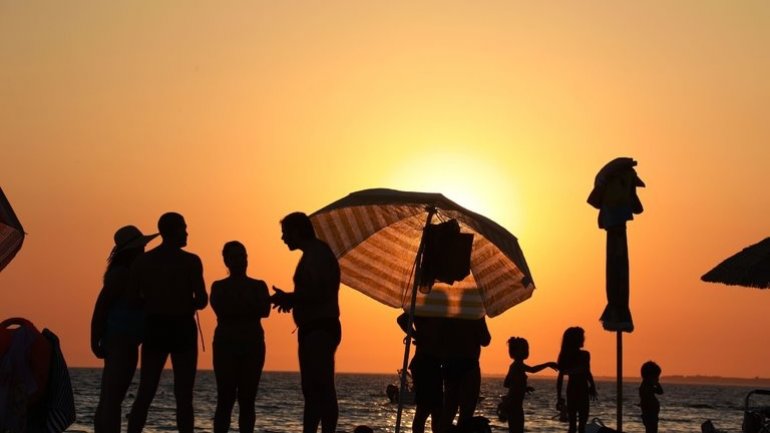How the Heat in Europe Is Affecting Travel
 foto: nytimes.com
foto: nytimes.com
A relentless heat wave across much of Europe is making travel difficult and uncomfortable for hotel owners and their guests.
“There’s been a high pressure dome reaching from Spain throughout Eastern Europe,” said Jonathan Erdman, a senior digital meteorologist for the Weather Channel. “It’s been persistent with very little cloud cover and has been camped out over most of the summer in Spain, Italy, Hungary, Serbia, Croatia and Romania.” The intensely hot weather, which began in Italy and the Balkans in the spring, has brought European temperatures to highs in the low 100s, dropping into the 80s only in the evening, he said.
The latest “State of the Climate” global report by the National Oceanic and Atmospheric Administration, published in July, said that January to June was the hottest such period on record in parts of Western Europe, including Spain, Portugal, far southern France and Sicily. “According to Spain’s meteorological agency, AEMET, a record high in the country was set on July 13 — 47.3 degrees Celsius [117.1 Fahrenheit] — in Montoro,” Mr. Erdman said.
“The heat has gone on day after day after day in cities with lots of buildings and concrete and not many parks,” said Mr. Erdman, who recently experienced it firsthand on a multicity European tour. “There’s no break at night. You open a window hoping for a cool breeze, but you’re standing in front of a hair dryer.”
Nat Hake, from Denver, was recently in Berlin “in a very nice four-star hotel” but found the heat “fairly unbearable inside the rooms, which of course don’t have AC.”
“I knew that going in,” he said. “But when I called to ask for a fan, the person at the front desk said, ‘Yes, I know fans are standard in American hotels, but that’s just not how it works here in Europe.’” Mr. Hake did not get a fan.
“I’m in my final leg of a six-week backpacking trip through the Balkans and Italy, 12 cities in eight countries. The heat is brutal!” Stephanie Craig, who lives in Philadelphia, said in an email.
“When I booked accommodations, I didn’t consider air-conditioning,” she said, “but I’ve been pleasantly surprised. Every hotel I’ve stayed at has had air-conditioning. Of the 12 hotels and hostels I’ve stayed in during the heat wave, nine had air-conditioning and two had enough fans for every room. Only one place did not have either available.
“The heat wave practically ruined my time in Venice, a city where it’s either hard or expensive to escape the heat,” she added. “I’ve been staying cool by doing more of my sightseeing in the early morning or evening, booking individualized walking tours where we can change plans at the last minute if we need to, and getting taxis when it’s too hot to walk. Plus, tons of gelato.”
“American travelers are accustomed to air-conditioning in the warmer months,” said Chelsea Hudson, from Morristown, N.J. “I recently traveled to Athens, Greece, and I expected the weather to be warm. On our first couple of days there, the temperature reached 107 degrees. Even the Acropolis was closed due to the heat wave.” Her hostel had air-conditioning units in its windows, “but because it was so hot and all guests were running their units, we experienced power shortages. We got very lucky because a group of us were able to stay in the basement where it was extremely cool. With one fan, we were perfectly fine.”
Hotel owners say they too are coping as best they can. Jaime Armero owns a nine-room hotel in Requijada, Spain, La Tejera de Fausto, built in a former tile factory that isn’t air-conditioned. He relies instead on the building’s two-foot-thick stone walls to insulate rooms from grueling temperatures.
“It’s always hot in Spain,” he said. “Our location is 3,000 feet up, so it gets really hot during the day, but the evenings are cool.” At his home in Madrid, though, Mr. Armero relies on air-conditioning. “In Madrid it was nearly 104 degrees. You couldn’t survive it without air-conditioning.”
Ingrid Koeck, one of three owners of Torel Palace, a 28-room hotel in Lisbon, has been cooling down guests’ rooms before they arrive.
“We have air-conditioning in all rooms and common areas, but we have two old buildings from the turn of the 19th century, so we have to take specific precautions,” she said. “We also provide extra fans, close the shutters, offer plenty of cool water and have an outdoor pool.”
She counsels her guests, already visiting a hilly city that requires much walking, to adjust by slowing down and touring in the cooler mornings or evenings. “It’s already a challenge,” she said, “and in this heat they can’t manage. Take it easy! Sit down! It should be quality time. You don’t want to need a holiday from your holiday.”
Source: nytimes.com